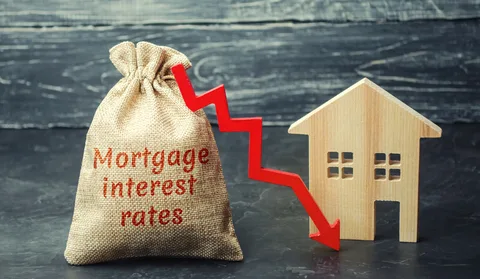
When it comes to financing your dream home, understanding home loan interest rates is crucial. The interest rate on your mortgage not only determines your monthly payment but also affects the total cost of your loan over time. In this guide, we will delve deep into how home loan interest rates work, the factors influencing them, and strategies to secure the best rate for your mortgage.
Understanding Home Loan Interest Rates
What Are Home Loan Interest Rates?
Home loan interest rates are the percentage charged on the total loan amount by the lender. They represent the cost of borrowing money to purchase a home. These rates can be fixed or variable depending on the type of mortgage you choose, impacting your financial planning and overall cost of the home.
Fixed vs. Variable Interest Rates
Fixed interest rates remain the same throughout the life of the loan, providing stability in your monthly payments. Variable interest rates, on the other hand, can fluctuate based on market conditions, potentially leading to lower initial rates but with the risk of increases over time.
Factors Influencing Home Loan Interest Rates
1. Economic Indicators
The broader economy plays a significant role in determining home loan interest rates. Factors such as inflation, employment rates, and the Federal Reserve’s monetary policy can lead to fluctuations in mortgage rates. Typically, a strong economy results in higher rates, while economic downturns may lead to lower rates.
2. Credit Score
Your credit score is one of the most critical factors lenders consider when determining your interest rate. A higher credit score indicates a lower risk for lenders, often resulting in more favorable rates. Conversely, a lower credit score may lead to higher rates or even difficulty securing a loan.
3. Loan Amount and Down Payment
The loan amount and down payment you offer can also influence your interest rate. Borrowing a large amount relative to the value of the property can increase your risk to lenders, leading to higher rates. A larger down payment, however, may lower your interest rate by reducing the amount you need to borrow.
4. Loan Term
The loan term—the length of time over which you repay your loan—affects your interest rate. Shorter loan terms usually come with lower interest rates, as lenders recover their money more quickly. However, this also means higher monthly payments.
5. Type of Mortgage
Different types of mortgages have different interest rates. Conventional loans, FHA loans, VA loans, and jumbo loans all have unique requirements and associated rates. Understanding the differences can help you choose the most cost-effective option for your needs.
How to Secure the Best Home Loan Interest Rate
1. Improve Your Credit Score
A higher credit score can significantly lower your interest rate. To improve your score, ensure you pay your bills on time, reduce outstanding debt, and avoid opening new credit accounts before applying for a mortgage.
2. Increase Your Down Payment
Making a larger down payment reduces the lender’s risk, which can result in a lower interest rate. Aim for at least 20% down to avoid private mortgage insurance (PMI) and secure the best possible rate.
3. Shop Around
Different lenders offer different rates, so it’s essential to shop around. Obtain quotes from multiple lenders and compare them to find the best deal. Don’t forget to consider the overall terms of the loan, not just the interest rate.
4. Consider Loan Points
Loan points, or discount points, allow you to pay an upfront fee to reduce your interest rate. Each point typically costs 1% of the loan amount and can lower your rate by about 0.25%. If you plan to stay in your home for a long time, buying points can save you money in the long run.
5. Lock in Your Rate
Interest rates can fluctuate between the time you apply for a loan and when you close. Consider locking in your rate with the lender to protect yourself from potential increases. This is especially important in a rising rate environment.
The Impact of Interest Rates on Your Mortgage
Monthly Payments
The interest rate on your mortgage directly affects your monthly payments. Even a small difference in rates can lead to significant changes in what you pay each month. For instance, on a $300,000 loan, a 0.5% increase in the interest rate could add hundreds of dollars to your monthly payment.
Total Interest Paid Over the Life of the Loan
Lower interest rates reduce the total amount of interest you pay over the life of the loan. For a 30-year mortgage, the difference between a 3% and 4% interest rate could amount to tens of thousands of dollars in additional interest payments.
Equity Growth
Lower interest rates mean more of your payment goes toward the principal, allowing you to build equity in your home faster. This can be beneficial if you plan to sell your home in the future or use your equity for other financial goals.
Current Trends in Home Loan Interest Rates
Economic Outlook
As of 2024, interest rates have been influenced by a combination of inflationary pressures, the Federal Reserve’s policies, and global economic conditions. Rates have fluctuated, making it essential for potential homeowners to stay informed about current trends and forecasts.
Fixed vs. Variable Rate Trends
Fixed rates have remained popular due to their stability, especially in uncertain economic times. However, some buyers are considering variable rates due to their lower initial costs, despite the risk of future increases.
Refinancing Considerations
With interest rates varying, many homeowners are exploring refinancing options to lock in lower rates. Refinancing can reduce monthly payments, shorten loan terms, or allow homeowners to access their equity.
Conclusion
Securing the best home loan interest rate is vital to making homeownership affordable and maximizing your financial health. By understanding the factors that influence rates and taking proactive steps to improve your credit score, increase your down payment, and shop around for the best deal, you can ensure that you get the most favorable terms on your mortgage.






